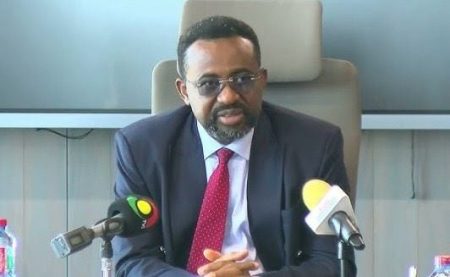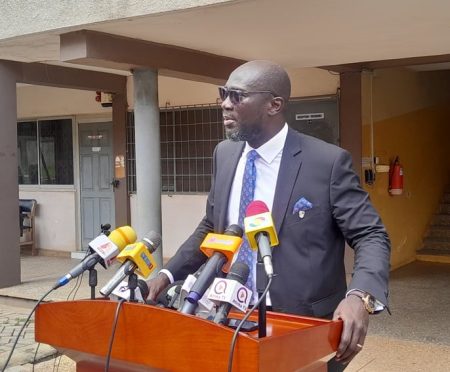The controversy surrounding the alleged disappearance of Electricity Company of Ghana (ECG) containers began in March 2025, sparking public outcry and accusations of mismanagement within the state-owned entity. Initial reports, originating from a Ministry of Energy and Green Transition audit, suggested that a staggering 1,300 containers were unaccounted for, raising concerns about potential theft, corruption, and operational inefficiencies. This ignited a media frenzy, with headlines proclaiming the massive loss of state assets and fueling public distrust in the government’s handling of public resources. However, as the situation unfolded, a drastically different narrative emerged, challenging the initial claims and highlighting the importance of thorough investigation before drawing conclusions.
Kofi Bentil, Senior Vice President of IMANI Africa, a prominent policy think tank, emerged as a vocal critic of the initial handling of the situation. He dismissed the widely circulated narrative of widespread container disappearance, attributing the perceived crisis to a lack of diligence on the part of the audit committee. Bentil argued that the team prematurely sought media attention, prioritizing sensationalism over a comprehensive and accurate assessment of the facts. He accused them of hastily generalizing a small number of genuinely missing containers to represent the entire inventory, thereby creating an exaggerated picture of the situation. This, he contended, not only misrepresented the reality but also unnecessarily fueled public anxiety and eroded trust in the ECG and the government.
Bentil’s criticism centered on the audit committee’s failure to conduct a thorough inventory reconciliation and tracking exercise before going public with their findings. He emphasized the importance of due diligence, arguing that a proper investigation should have involved meticulously tracing the movement and location of each container, confirming their status, and verifying their contents. This, he believed, would have provided a more accurate and nuanced understanding of the situation, preventing the spread of misinformation and unwarranted panic. He stressed that responsible leadership demands a commitment to thoroughness and accuracy, especially when dealing with sensitive matters that can significantly impact public perception and confidence.
Contrary to the initial reports of widespread container disappearance, the Ministry of Energy and Green Transition later clarified that the vast majority of the containers were not missing, but rather, their status had been misclassified during a transitional audit. The ministry confirmed that a total of 2,637 containers, initially flagged as missing, had been located and were under the control of port authorities. This revelation dramatically altered the narrative, shifting the focus from alleged theft to a procedural and record-keeping issue. The discrepancy, it was explained, arose from the complexities of transitioning between different systems and the challenges of accurately reconciling inventory data.
Richmond Rockson, Head of Communications at the Ministry of Energy and Green Transition, further clarified that the initial audit had flagged nearly 3,000 ECG containers as “uncleared.” This classification, however, did not imply that the containers were missing, but rather that their customs and administrative processes were incomplete. The subsequent investigation revealed that the containers were indeed in the possession of the relevant authorities, awaiting final clearance and processing. This explanation highlighted the importance of clear communication and accurate data interpretation, particularly in the context of complex logistical operations.
The ECG container saga underscores the importance of rigorous fact-checking and responsible reporting, especially in an age of rapid information dissemination. The initial reports, based on incomplete and misinterpreted data, led to widespread public misconception and fueled unnecessary anxiety. This incident serves as a cautionary tale, emphasizing the need for thorough investigation and accurate data analysis before drawing conclusions and disseminating information. It highlights the potential for misinformation to rapidly spread and the importance of relying on verified information from credible sources. Ultimately, the resolution of the situation demonstrated that the vast majority of the containers were accounted for, emphasizing the crucial role of due diligence and accurate reporting in preventing the spread of misinformation and maintaining public trust.














